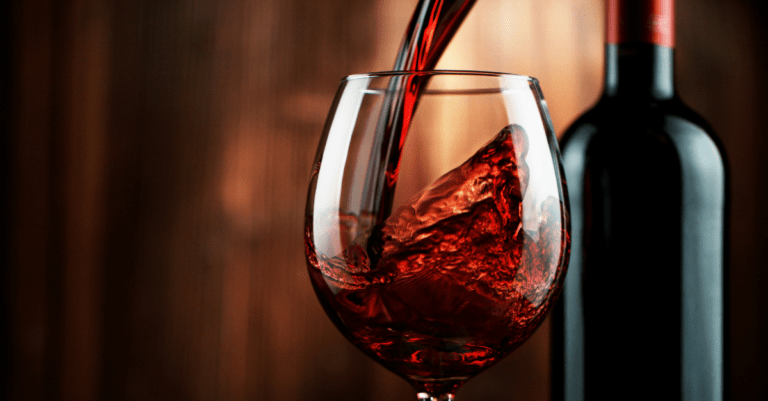Invariably whenever I’m at a friend’s home, there comes a time in the evening when my hosts pull out a bottle of recently purchased wine and say to me, “Is this any good?”
To which I always respond: “Open it and let’s find out!”
Unfortunately it’s not possible to know by looking at the bottle and reading the notes on the back label if the wine is going to be good. Only a corkscrew, a glass, and your taste buds can do that.
But isn’t it enough to say a wine is good if I like it? Well, not really. The fact that it’s pleasing to you is a matter of personal preference, but determining if the wine is a good one takes looking at various elements to determine its objective quality. And if it turns out to be a good wine and you like it – then toast to that!
There are 4 simple aspects of a wine to consider when deciding if the wine is of good quality:
#1: Smell
The first is the smell. Even before you take a sip, stick your nose in the glass and take a whiff – does it smell like wine? Seriously, does it smell fruity or perhaps floral? If so, it’s passed the first test. If however, it smells like Rover after he’s been swimming or like the soaking wet newspaper you forgot to pick up from the driveway before the storm came – then it’s most likely corked and therefore, no good.
If that’s the case, I’m afraid it’s game over for that wine – pour it down the sink and open another.
#2: Balance
When a wine is in balance, none of the components of acidity, tannin, alcohol, or fruit stand out as the main event.
Let’s say your wine passes the sniff test. The second clue to knowing if your wine is good is balance. You may have heard wine experts talking about a “balanced wine” and thought it was more of the usual wine mumbo jumbo. But balance is an important aspect of a wine. If you had a bottle that was out of balance, you probably wouldn’t like it even if you didn’t know why.
When a wine is in balance, none of the components of acidity, tannin, alcohol, or fruit stand out as the main event. If the high level of acidity makes your eyes water or the searing levels of tannins feel like you drank wool instead of wine, the wine is not balanced. If however, you notice a nice freshness to the wine, the tannins are supple and proportioned, the fruit is plentiful but not overpowering, and the alcohol is imperceptible. In this case, I would suggest that your wine is balanced – check!
#3: Depth
Next we want to look at, or actually taste, the depth of flavor in the wine. This is as simple as thinking about what you’re tasting as you hold the wine in your mouth and swirl it around. The wine will almost certainly taste of fruit – but is that all? Can you detect other layers of flavor beyond the fruit? Perhaps a touch of nuts or grapefruit in a white, or chocolate or coffee in a red? This would suggest a multi-faceted wine with several layers of flavor.
Wines with depth of flavor are a lot of fun and if you are sipping one with dinner, you will notice how the wine changes during the course of the meal – it develops in your glass and more and more aromas and flavors come forward depending on what you are eating. A wine with a depth of flavor is certainly a candidate for a “good” wine.
#4: Finish
- Lastly, and maybe most easily, another way to determine if your wine is good is to consider its length or finish. You simply swallow the wine and see how long the flavor lasts on your palate – the longer it lingers, the better the wine.
- If, once you’ve swallowed, the flavor drops right off and goes away in a split second, it’s probably not such high quality. But if you can still taste appealing characteristics 2, 3, or 4 seconds after – you may be onto something. And when you can still taste the wine after 10 or more seconds, you may have hit the quality wine jackpot!
- So next time you want to know if a wine is good, crack open the bottle and consider these 4 elements: smell, balance, depth of flavor, and finish and you’ll know immediately if it’s a good wine – and that’s worth drinking to!
- Cheers!
- ***
- Tara Devon O’Leary is a sommelier, author of the popular blog WinePassionista.com, and co-host of the online wine show “The Punch Down.” Tara holds a Diploma certification from the world-renowned Wine & Spirit Education Trust (WSET) where she is also a Certified Educator. She is accredited by the Society of Wine Educators as a Certified Specialist of Wine, is a member of the Circle of Wine Writers, and has served as judge at major annual international wine competitions. Tara’s advice is delivered with a dash of flair, heaps of enthusiasm, and zero snobbery.
- Connect with Tara on Facebook and Twitter

